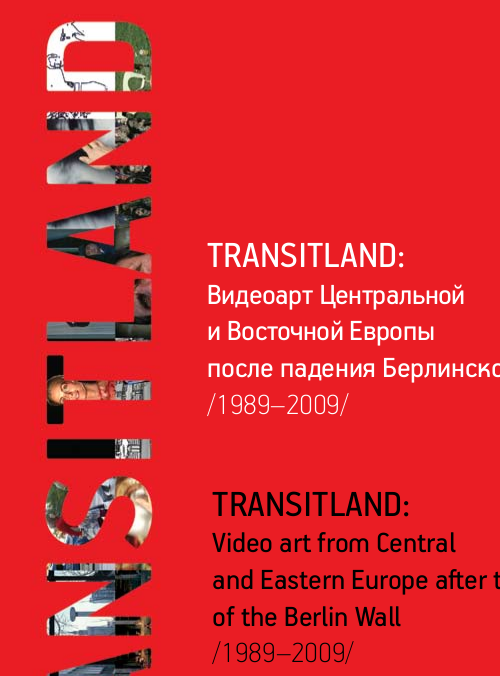Bogumiła Suwara, Zuzana Husárová (eds.): V sieti strednej Európy: nielen o elektronickej literatúre: (2012) [Slovak, Czech]
Filed under book | Tags: · central europe, computer games, digital text, electronic literature, experimental literature, hypermedia, internet, literature, networks, poetry, text, theory, writing

(EN) This international collective monograph brings an understanding of the problematic of changes in artistic communication in the context of the cultural practices of the post-digital era and simultaneously asks new questions about it. This book presents the keystones of electronic literature research that are based, among others, on the digital character of the text, on multisensory reading, playfulness, hypermediality, experimentation and Internet communication. Its aim is also to map digital literature in the cultural environment of Central Europe. Researchers from Slovakia, The Czech Republic, Poland, Slovenia and Croatia collaborated on the publication. The monograph is a printed textual tapestry of various approaches, theories and perspectives that communicate among themselves, react to each other and together clarify the structure that literature personifies in the new media realm.
(SK) Kolektívna monografia prináša nové poznatky a zároveň kladie otázky o problematike zmien v umeleckej komunikácii v kontexte kultúry post-digitálnej doby. Prezentuje piliere výskumu elektronickej literatúry, ktoré okrem iného stoja na digitálnej podstate textu, na multisenzorickom čítaní, hravosti a hypermedialite, experimente a internetovej komunikácii. Cieľom je zároveň zmapovať recepciu digitálnej literatúry v kultúrnom prostredí strednej Európy. Na publikácii participovali bádatelia zo Slovenska, Čiech, Poľska, Slovinska a Chorvátska. Monografia je tlačenou textovou sieťou rôznych prístupov, teórií a hľadísk, ktoré vzájomne komunikujú, reagujú a spoločne dospievajú k osvetleniu štruktúry, ktorú literatúra v novo-mediálnom prostredí zosobňuje.
Contributions by Zuzana Husárová, Jana Kuzmíková, Gabriela Magová, Mira Nabělková, Andrzej Pająk, Katarina Peović Vuković, Mariusz Pisarski, Michal Rehúš a Jaroslav Šrank, Janez Strehovec, Bogumiła Suwara, Jaroslav Švelch
Publisher: SAP & Ústav svetovej literatúry SAV, Bratislava, 2012
Design and cover: Katarína Gatialová
ISBN 9788080950767
312 pages
Quo vadis elektronická kultúra? (a series of activities around the publication, Bratislava, 26-27 September 2012)
PDF (updated on 2012-9-25)
EPUB (updated on 2012-9-25)
Transitland: Video Art from Central and Eastern Europe, 1989–2009 (2010) [English/Russian]
Filed under catalogue | Tags: · art, art history, central europe, east-central europe, eastern europe, transition, video, video art

“Transitland is a major retrospective devised by the leading contemporary art centers of Germany, Hungary and Bulgaria. A series of Media Forum events organized by the MediaArtLab Centre for Art and Culture in 2010 were dedicated to it: an exhibition in the Moscow Museum of Modern Art, lectures and a panel discussion in the Garage Centre for Contemporary Culture. The video artists born behind the Iron curtain discussed things that went on in Europe after the fall of the Berlin Wall and the destinies of their own countries, many of which have already disappeared from the map.”
With essays by Kathy Ray Huffman, Olga Shishko, Keiko Sei, Alexey Isaev, Edit András, Constantin Bokhorov, and Marina Gržinić.
Publisher MediaArtLab, Moscow, 2010
137 pages
Project website and archive (archived)
Exhibition
Publisher
PDF (updated on 2013-5-29)
See also earlier Transitland publication, edited by Edit András and published in Budapest, 2009, 319 pp. (added on 2015-11-28)
Comment (0)Robert T. Holt: Radio Free Europe (1958)
Filed under book | Tags: · bulgaria, central europe, communism, czechoslovakia, history, hungary, mass media, poland, politics, propaganda, public broadcasting, radio, romania, southeastern europe

What is radio Free Europe? Where does it broadcast? Who runs it? What are its purposes? Although thousands of Americans are familiar with Radio Free Europe (many have contributed to its support through the Crusade for Freedom campaigns), few know enough about its background to answer these and similar questions. In this book a political scientist with first-hand knowledge gives a detailed account of the organization and development of this unique propaganda enterprise.
Radio Free Europe was established as a private broadcasting project in 1949 by the Free Europe Committee, headed by Joseph C. Grew, as part of the Committee’s program of broad, long-range assistance to democratic exiles from totalitarian countries. The operational headquarters are located at Munich, and the broadcasts are directed to the people of five satellite countries: Czechoslovakia, Hungary, Romania, Bulgaria, and Poland.
Professor Holt tells how Radio Free Europe was established, outlines its basic policies and objectives, describes its organization, personnel, programming, and services, discusses transmission problems, and examines the effectiveness of the propaganda. He describes in detail the role of RFE in connection with the uprisings in Poland and Hungary and analyzes the charges that RFE stimulated the Hungarian revolt.
Publisher University of Minnesota Press, 1958
ISBN 978-0-8166-5788-9
249 pages

